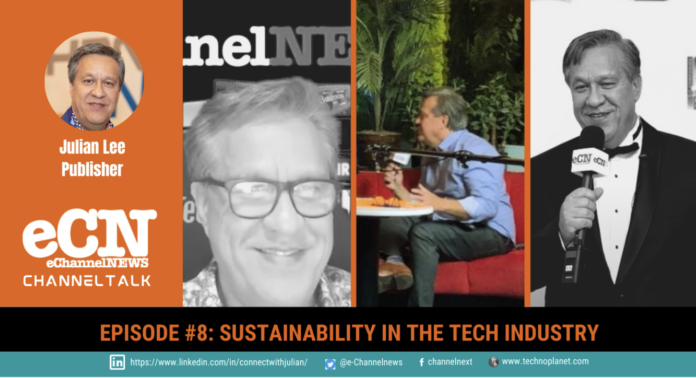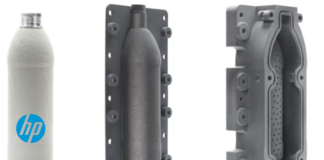Is
On the subject of sustainable practices, everyone has an opinion. Most people believe that climate change is real and that we must take appropriate action. According to scientists, we have less than ten years to implement the necessary changes. Some argue that it is already too late. Some say the opposite. Who should we believe? What does it matter?
Well, I am not a climate expert, but as a human, I can say that the weather appears to be out of whack. Larger natural disasters appear to be becoming more common. So, if this is any indication, our future may not be as bright as we believe, and in some areas, it may be disastrous.
As a human being, I try to do my part. Wherever possible, I recycle. I am aware of the dangers of overpackaging. I am eating less meat. I ride my motorcycle more than my car (primarily because it is more enjoyable). We started “My Green IT Day” many years ago to encourage channel partners to host one day a year for their clients to bring in their old equipment to be properly recycled. Many people still do it today, and some do it multiple times a year.
Having said that, following my news interview with HP’s head of sustainability, Frances Edmonds, I see that there is much more that can and should be done.
You might be interested in watching my recent 60-minute conversation with her.
This appears to be a massive task that many people and countries have been debating and working on for decades. Nonetheless, we’re still not where we should be. How many times do we need to discuss whether or not the problem exists, let alone how to fix it?
Currently, less than 10% of plastics in Canada are recycled. Worst of all, the plastics are illegally transported to other countries. We occasionally hear about it in the news, such as when a country returned containers full of waste to Canada. Or, more recently, in a Fifth Estate episode (aired on April 24, 2022) that highlighted the massive problem of plastic waste. Listen to our Environment Minister (who was once an environmental activist) skate around the questions. He wouldn’t name the companies doing the illegal exporting. Even the authorities who discover illegal plastic shipments are unable to identify the perpetrators.
When there is no political will or when it is too profitable to quit, people will continue to do the wrong thing. I am confident that when doing the right thing affects their financial rewards or political ambitions, then and only then will real change occur. Meanwhile, it is all about deception to cover up and say nothing.
So, how can we (the people) turn the tide?
First, each individual must decide which side of the fence they will be on. To do so, you could believe in the mountains of data generated by people who have dedicated their lives to studying the problem, or you could become a scientist and conduct your own research.
There is something that I found very interesting in order to better understand the problem.
It’s known as Carbon Trackers (Google it, but here is one I like from Berkeley). You enter your numbers into the app, and it will provide you with an estimate of your personal carbon footprint. When you see that, it may help because it is more personal. We’ve all heard that everything on Earth is connected, so open your eyes, gather the necessary information, and draw your own conclusions.
If you still don’t believe in climate change, that’s fine. Have you ever seen a movie where there is always someone who does not believe the storm is coming and then regrets it when it does?
After you’ve completed the carbon tracker exercise, you can adjust your habits and redo the assessment to see how they’ve changed. When you multiply this by the number of people in your family and circle of friends, you can see how quickly your influence can grow. When you implement these changes in your company, the impact is much greater. If you can persuade your clients to do the same, you will see how much of a difference one person can make.
However, if it will take time and money, sustainability is a difficult pill to swallow. Because the actual environmental effects may not be as severe in your personal life, it’s easy to put off the inevitable.
What is intriguing about HP’s approach is that it aims to make sustainability profitable for businesses (and they did). According to Frances Edmonds, HP has already generated $3 billion from the practice and is just getting started.
The company provides a wealth of information and tools to assist anyone in getting started. Anyone can do it if they have the proper knowledge, tools and motivation.
Today, a “carrot” is in charge of sustainability. In the future, it will most likely be a stick. Humans will have no choice but to comply with proper sustainability practices as the tipping point becomes clearer. Companies will have to adapt as more regulations and compliances become the norm.
Since it appears that this hammer will fall one day, why not start now to get ahead of the curve and build a more sustainable future for your company and the planet? If we can’t avoid the problem, we can at least slow it down so that brilliant minds have more time to come up with better solutions.
Vendors looking to reward their channel partners in order to be more sustainable can quickly generate profitability. It can also result from making products last longer and charging higher prices. According to HP, extending the life of a notebook by two years reduces its carbon footprint by 35%. That doesn’t mean you have to keep your laptop for another two years because it can be reconditioned and reused by someone else.
Purchasing products from companies that practice sustainable practices on a daily basis is an easier way to be part of the solution rather than part of the problem. If all else is equal, why not spend your money on environmentally friendly brands? We know that technology companies have a significant carbon footprint, so anything they can do to reduce it will help. The issue is that the vast majority do not. They are rewarded based on how many new products they sell rather than how much they recycle. Some manufacturers impose severe limitations on the repair of their equipment. Why? After all is said and done, I believe the answer is self-evident: throw out the old and buy new. This, I believe, is how “fast fashion” works.
It can be discouraging at times when you see even more unexpected challenges like how the War in Ukraine is impacting the environment. Two steps forward, three steps back! The Washington Post recently reported on the topic.
Setbacks will always be happening. We intend to carry on and do more.
We will restart our My Green IT Day initiative. We will continue to publish best practices content and highlight companies doing the right things. We are currently investigating a platform that will allow businesses to easily track their sustainability activities and donate funds to like-minded organizations that they choose.















